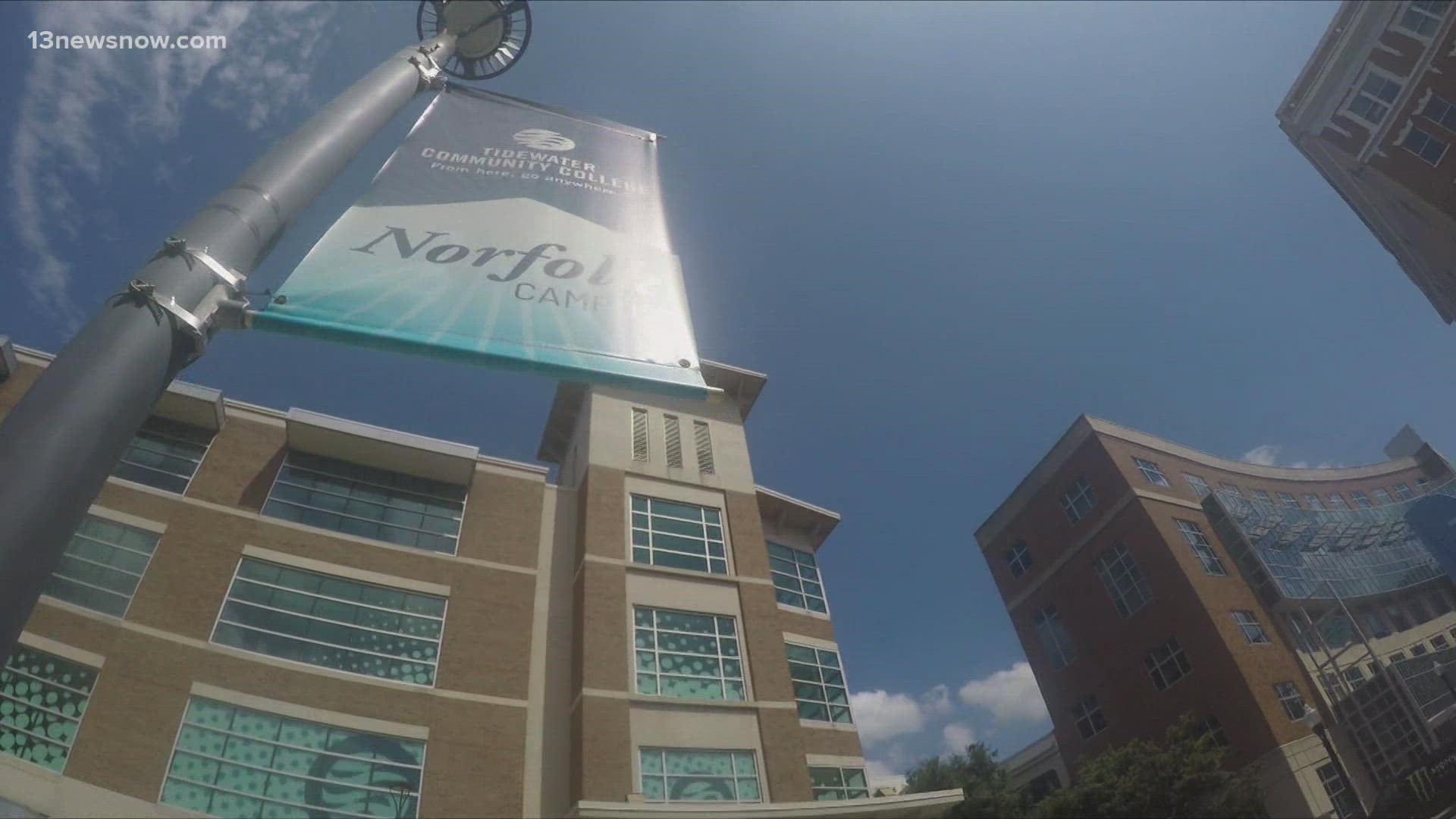NORFOLK, Va. — For people who choose to go to college, keeping up with classwork and grades is already hard enough. But COVID-19 added even more stress and challenges for students across the Commonwealth.
A study released in the spring shows many students at Virginia’s Community Colleges struggled because of the pandemic, and it’s changed the way educators support students in and out of the classroom.
Krystle Vallejo is a wife and mom of two in Virginia Beach.
She lost her job early on in the pandemic and decided to go to school and pursue a longtime dream.
“I want to be a teacher," she said. "I’ve never had the chance to do college before.”
So Vallejo enrolled at Tidewater Community College, but she could only afford one class out of pocket. She also quickly learned her internet connection wasn’t fast enough to keep up with her and her kids’ virtual learning.
That's when she connected with a campus advisor.
“Not only did they get my hotspot working, but they got the rest of my tuition carried," said Vallejo.
Vallejo is one of the students helped through Tidewater’s newly created Student Resource and Empowerment Center.
There, she learned about the Re-Employing Virginians, or R.E.V. grant, which offers financial help for people who lost their jobs during the pandemic and want to retool their skills.
“Our students really have needs that they didn’t have back in 2020 when they left the campus," said Dr. Jeanne Natali, Director of Student Resource and Empowerment Center.
Dr. Natali said resource centers are now open at all TCC campuses, with caseworkers ready to connect students with any resources they need, including outside of the classroom.
“They may need to make a car repair," said Dr. Natali. "They may need to keep the lights on. That’s a relatively small amount of money to keep a student in school and keep them on task.”
“One of the things I’ve learned through my years is help is only help if it comes when you need it," said Dr. Besty Harrison, Dean of Student Services for Thomas Nelson Community College.
At TNCC in Hampton, students have access to a food pantry and help with groceries. They have also started a program called, Single Stop, a one-stop-shop for student’s needs, including housing and employment.
“Because we don’t want it to be ‘do I pay my light bill or do I purchase my books for my class," said program coordinator Sonja Vega.
Zee Cherry is a first-generation college student starting her second year at Thomas Nelson.
She, too, struggled with the transition until she connected with an on-campus advisor, who helped her pay for school and check out a laptop.
“They may out of the blue say, ‘hey how are you doing?’ Someone to check on you so you don’t have to feel pressured with your schoolwork or even outside of school," said Cherry.
Back at Tidewater, Vallejo said she was also connected to the new Community Feed, a food pantry located inside MacArthur Center.
As of January, more than 20,000 meals had been given out to TCC students.
“It’s pretty awesome how they’ve been taking care of us during COVID,” said Vallejo.
Virginia's Community College System now offers a tuition assistance program for eligible students, which can reduce the cost of tuition to zero dollars.
And campuses have rolled out more resources for students' mental health.
For instance, TCC provides a C.A.R.E. team on each campus. Students can request support from the team members, or faculty or staff can recommend support staff connect with students. TCC also partners with TalkCampus, an online support service and app focusing on mental health. Students can talk anonymously and receive mental health support.
If someone with TalkCampus recognizes a student is having a mental health crisis, he or she will connect with campus staff.

